On a cool November Sunday in the Printmaking & Letterpress Studio at Penland School of Craft, a handful of artists gathered around Bryce McCloud, founder and proprietor of Isle of Printing (Nashville, TN), to begin a class he titled, Analog Social Media. Discussions continued late into the evening about the history of communication technologies, the value of materials and community, and the distinction between studio art practice and social art practice. Bryce had proposed the course as a case study for teaching artists the core elements involved in a social art practice. He envisioned a communication station to encourage listening and talking to one another during a historic week and asked us to move forward from that idea. The students embraced and also questioned the base idea, but after a Monday morning planning session a station for human-powered, analog communication was underway.
The communication station consisted of spaces and materials to facilitate conversations, recording, and broadcasting. Once completed, the records of the conversations would be elevated (or released).
Conversations—two talk and listen spaces were outfitted with materials and placed in open area to welcome participants. Chairs were placed at the small tables for individuals who agreed to respectfully talk and listen or listen and talk to one another.
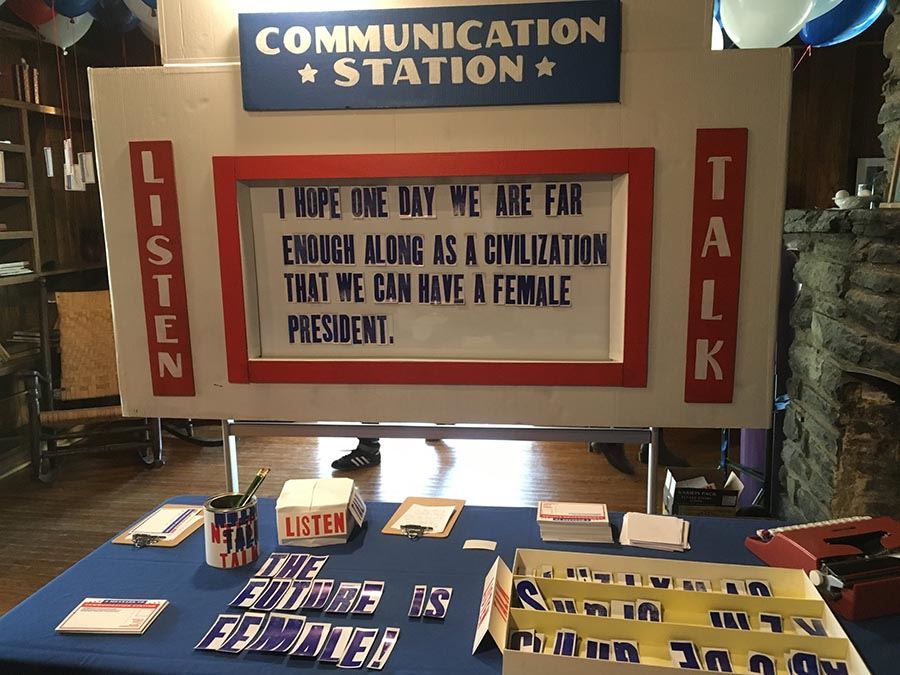
Communication Station, Talk/Listen side
Recording—following the conversations, individuals were asked to write what they heard on a printed postcard and confirm with their conversation partner that the recorded text was an accurate record of their statement(s).
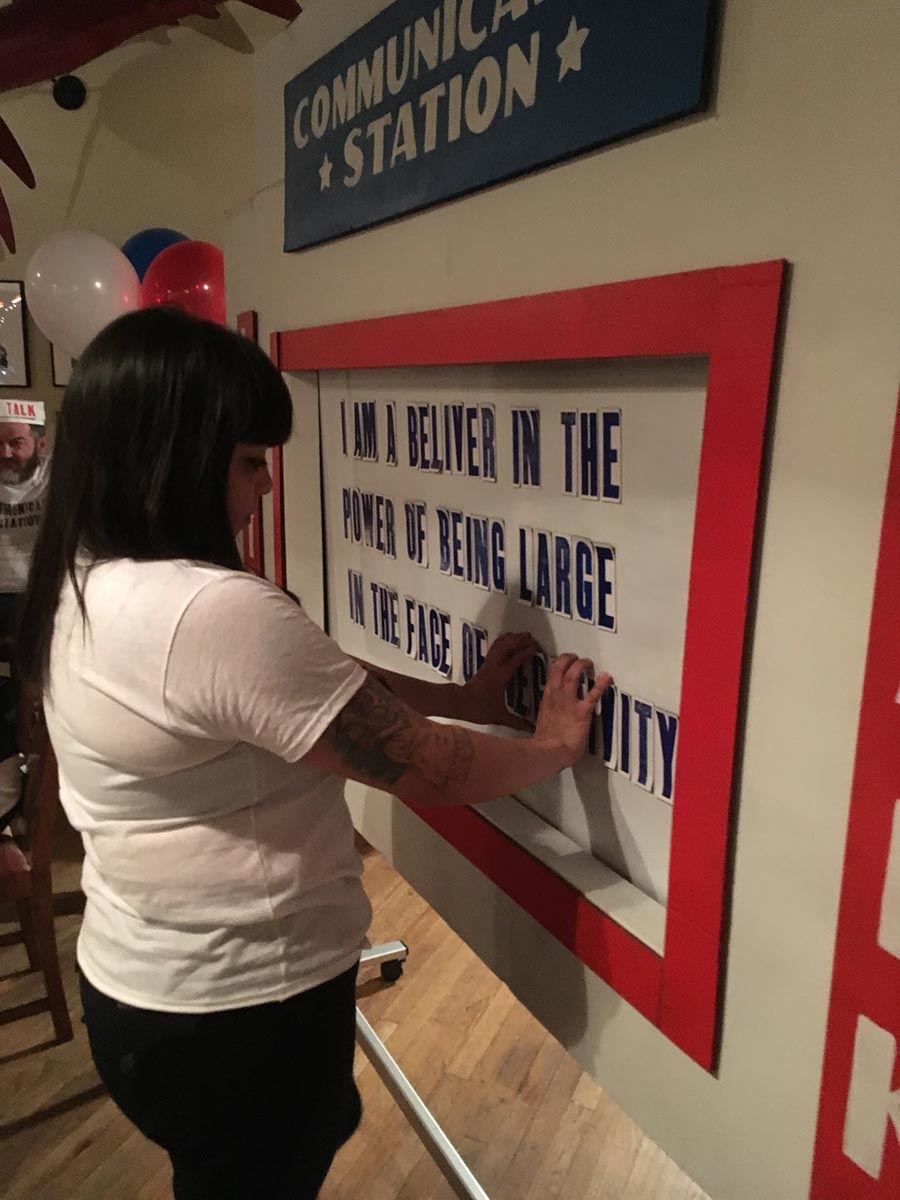
Student broadcasting text message at the Communication Station
Broadcasting—an American flag symbol was painted on cardboard which covered one side of the station’s eight by four foot movable magnetic board. The remaining side could be covered, letter by letter/sort by sort, with short, Twitter-length statements using magnetic strips adhered to alphabet letters and punctuation marks (printed using wood type). The “case” of sorts sat on a small table in front of the board and our staff would “broadcast” the incoming text.
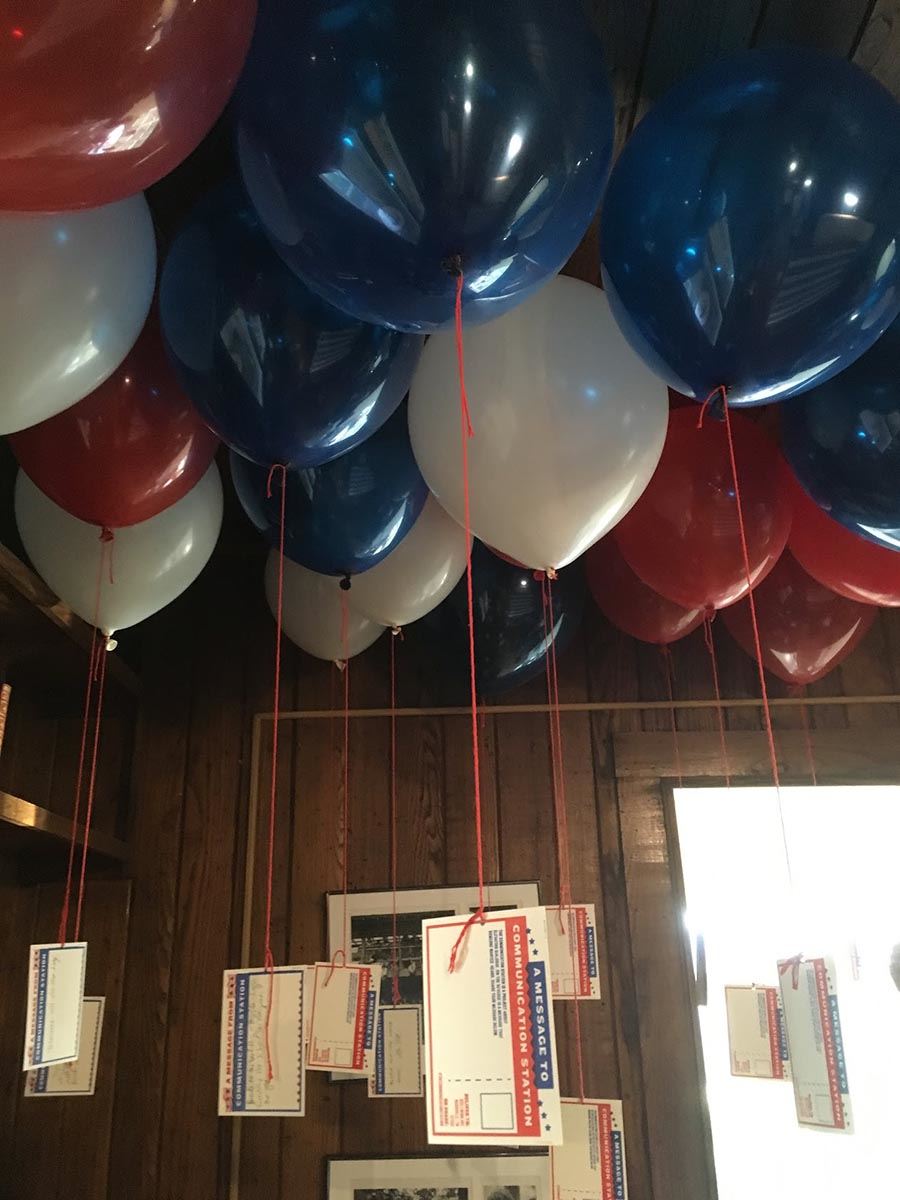
Message attached to balloons, ready for release
Elevations—the postcards were collected and the texts reviewed by those running the station and shared in a cycle of “broadcasting” on the station’s board. The postcard was then attached to a helium-filled balloon, gathered near the station locations, and released over the hills of North Carolina in an effort to elevate the conversations.
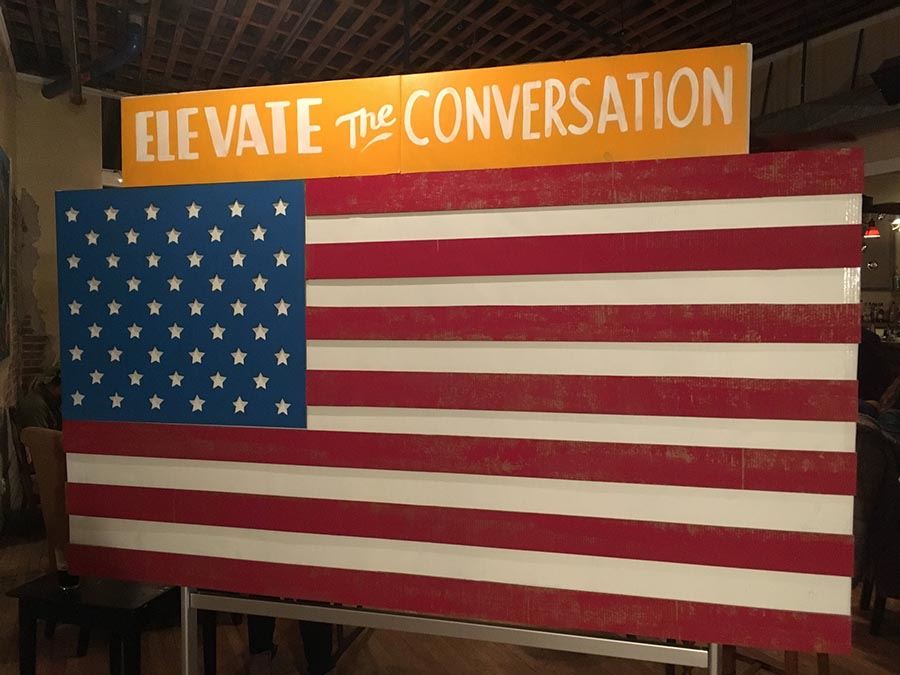
Communication Station, Flag side
Members of our team wore white relief-printed “communication station” t-shirts—the first project of the class—as a means of identifying ourselves and creating a clear sense of our purpose. Our team members discussed our respective personalities and determined who would be most adept at the various roles of soliciting participants, conversating with an individual at the talk/listen tables as needed, broadcasting the texts, coordinating supplies, and observing and responding to needs during the sessions.
Following the Voting Tuesday results, we set up the station at the Penland student center during lunch and through dinner at Penland and a local bar in Spruce Pine, North Carolina Wednesday evening.
On Thursday morning, our team of artists contemplated the emotional responses shared by those in the Penland and Spruce Pine communities. We saw a need for additional tools to help individuals talk and listen to one another, particularly given the polarizing election results. One common concern which we heard (and ourselves expressed) was how to get through upcoming holiday events with our families. Our team set to work on creating a dinner guide to inspire civil discourse. We had some 30 hours to design, print, and assemble our guide which we wanted to share with each of the 150 members of the Penland community. Illustrations of progressive meal courses from various culinary traditions were drawn by the expert sign maker, wordsmithing was done to clarify intentions for the guide, and a folded packet designed. The packets were printed by hand on Risograph and letterpress machines and the packets were folded and formed to the card collection.
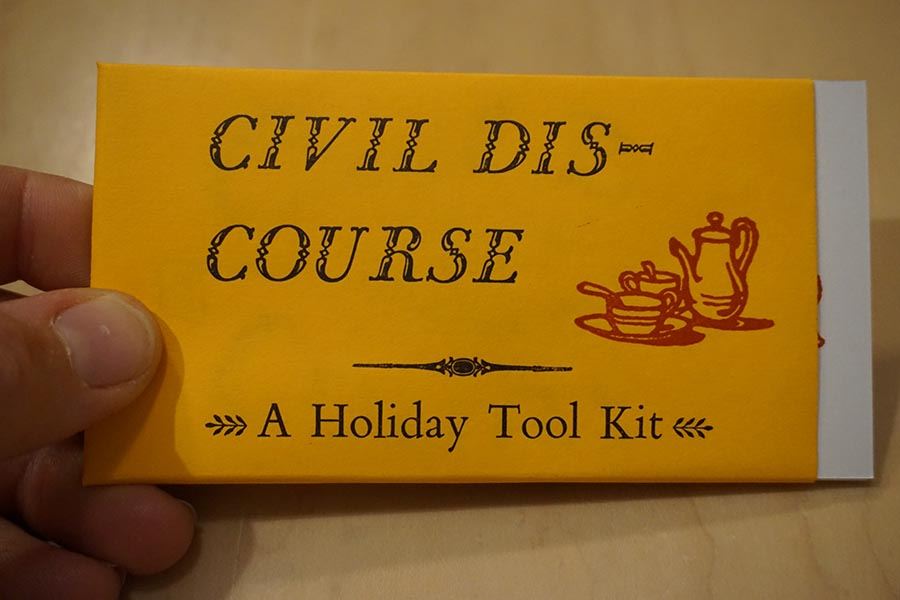
Civil Dis-course: A Holiday Took Kit
On Friday our team distributed the meal guide, titled Civil Dis-course, to nearly all of the Penland community members and encouraged them to take a copy for a friend, if helpful. In addition to the many hugs and words of gratitude received, I felt as if our work had given individuals a pathway for moving beyond the profound fears and immense frustrations they were experiencing. The onsite station and printed guides were creative, playful ways to support the challenging act of having meaningful dialogue with others, particularly when individual views are divided further by politics or when there has been an ongoing disagreement. The products of the class were handsome tools for healing and progress made valuable when used to nurture conversations.
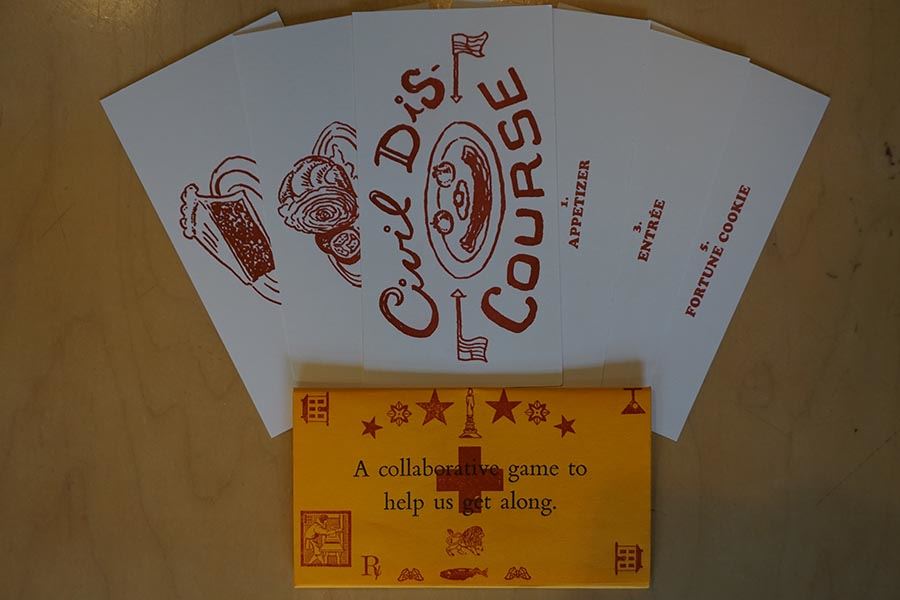
Civil Dis-course; A Holiday Tool Kit, contents
Bringing members of a community together to talk about and listen to their collective thoughts on an important happening takes a great deal of patience, humility, resolve, and creativity—much like any art process. Sharing the 2016 election with others staying at Penland gave me a powerful sense that Art—creative works that you can hold in your hand—can, and does, heal.
Amanda Nelsen is an artist and educator working in Charlottesville, Virginia.

